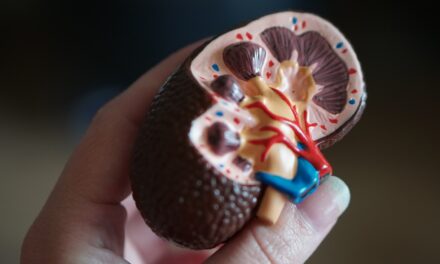Introduction to Ayurvedic Medicine and Constipation
Ayurvedic Medicine for Constipation, the time-honored system of holistic healing, places immense emphasis on digestion, viewing it as the cornerstone of human health. A well-functioning digestive system is essential for the absorption of nutrients, the elimination of toxins, and the overall balance of the body’s internal systems. When digestion is impaired, it can lead to an accumulation of waste and toxins, manifesting in discomfort and disease. One of the most common digestive complaints is constipation, a condition that Ayurveda views not only as a physical blockage but as a deeper sign of imbalance in the body’s energies. Ayurvedic treatments for constipation go far beyond quick fixes, offering sustainable solutions that address the root cause of digestive disturbances while restoring harmony to the body, mind, and spirit.
Understanding the Doshas and Their Role in Digestion
Ayurveda revolves around the concept of doshas—Vata, Pitta, and Kapha—three fundamental energies that govern all bodily functions. Each person has a unique constitution, or prakriti, that reflects a specific combination of these doshas. In the context of digestion, Vata plays the most critical role in regulating the movement of the bowels. When Vata becomes imbalanced, particularly in the colon, it often results in dry, hard stools and irregular bowel movements, which are classic symptoms of constipation.
While Vata is the primary culprit in constipation, Pitta and Kapha also play significant roles in the digestive process. Pitta, associated with heat and metabolism, governs the digestive fire (Agni). When Pitta is imbalanced, it can lead to inflammation in the digestive tract, resulting in conditions such as irritable bowel syndrome (IBS) or hemorrhoids, which may exacerbate constipation. Kapha, on the other hand, is related to structure and stability, and when out of balance, it can cause sluggish digestion and heavy stools. Understanding one’s dominant dosha and the state of imbalance is crucial for determining the right Ayurvedic treatment for constipation.
Causes of Constipation in Ayurveda
In Ayurveda, constipation is often attributed to an excess of Vata in the colon. Vata, characterized by qualities such as dryness, coldness, and movement, can become aggravated by various factors, including diet, lifestyle, and emotional stress. When Vata is aggravated, it disrupts the colon’s natural lubrication and flow, leading to dry and hardened stools.
Poor dietary habits are another major cause of constipation in Ayurveda. Consuming dry, cold, or processed foods depletes the body’s moisture and impairs the Agni, the digestive fire responsible for breaking down food. A weak Agni means that the body cannot properly digest and eliminate waste, leading to toxic buildup, known in Ayurveda as ama. This buildup further exacerbates constipation.
Emotional factors also play a significant role in Ayurvedic diagnoses of constipation. Stress, anxiety, and mental overactivity are known to disturb Vata, particularly in the colon. When the mind is agitated, it affects the body’s ability to maintain a smooth and balanced digestive process, often leading to chronic constipation. Recognizing these emotional triggers is crucial for treating the condition holistically.
Ayurvedic Diet for Relieving Constipation
Diet plays an integral role in Ayurvedic treatments for constipation, as the foods we consume directly influence our doshas and digestive health. To counteract Vata’s drying effects in the colon, it is essential to consume warm, moist, and nourishing foods that promote hydration and ease the digestive process. Cooked vegetables, whole grains such as rice and quinoa, and easily digestible legumes like mung beans are highly recommended.
Hydration is a key component of the Ayurvedic approach to constipation. Drinking warm water, herbal teas, and broths throughout the day helps to maintain moisture in the colon and prevent the drying effects of aggravated Vata. Ayurveda advises against cold or carbonated beverages, as these can further aggravate Vata and slow down digestion. In addition to proper hydration, healthy fats, such as ghee (clarified butter) and olive oil, are beneficial for lubricating the digestive tract and easing bowel movements.
It is also important to avoid foods that can exacerbate constipation. Dry, processed, and hard-to-digest foods, such as crackers, chips, and raw salads, should be limited. Instead, focus on warm, well-cooked, and lightly spiced meals that are easier on the digestive system. Spices such as ginger, cumin, fennel, and turmeric can be used to enhance digestive fire and promote regular bowel movements.
Herbal Remedies for Constipation
Ayurveda offers a variety of powerful herbal remedies to treat constipation naturally and effectively. One of the most revered remedies is Triphala, a blend of three fruits—Amalaki, Haritaki, and Bibhitaki—that works as a gentle yet potent laxative. Triphala not only helps to relieve constipation by promoting regular bowel movements, but it also tones the colon, supports healthy digestion, and cleanses the entire digestive tract without creating dependency.
Isabgol (Psyllium Husk) is another well-known Ayurvedic remedy for constipation. It is a rich source of fiber that absorbs water, bulks up the stool, and facilitates smooth passage through the intestines. It is particularly beneficial for individuals with dry or hard stools, as it helps to add moisture and ease bowel movements.
For more severe cases of constipation, Aloe Vera is a natural and soothing remedy that lubricates the intestines and encourages healthy bowel function. Aloe Vera’s anti-inflammatory properties help to calm the digestive system, making it an ideal choice for individuals with sensitive or irritated digestive tracts.
Ayurvedic Lifestyle Practices for Healthy Digestion
Ayurveda places great emphasis on daily routines, or Dinacharya, to support overall health and wellbeing, including digestion. Establishing a regular routine helps to calm Vata and maintain balance in the body. Starting the day with warm water infused with lemon or ginger helps to kick-start the digestive system and stimulate bowel movements.
Self-massage, or Abhyanga, using warm oils like sesame or almond oil, is a traditional Ayurvedic practice that helps to calm aggravated Vata, reduce dryness, and promote healthy bowel function. Regular massage, combined with moderate physical activity such as walking or yoga, keeps the digestive system active and prevents sluggishness.
Additionally, Ayurveda advises eating meals at regular times each day to support digestive rhythm. Irregular eating habits can disrupt the Agni, leading to constipation. By following a balanced routine and practicing mindful eating, individuals can ensure that their digestive systems remain in harmony.
Panchakarma: Ayurvedic Detox for Constipation
For individuals with chronic or persistent constipation, Panchakarma, the Ayurvedic detoxification therapy, can provide significant relief. Panchakarma is a five-step process designed to cleanse the body of toxins (ama) and restore balance to the doshas. One of the most effective treatments for constipation within Panchakarma is Basti, or herbal enemas.
Basti therapy directly targets Vata in the colon, softening stools and promoting the elimination of waste. This treatment is highly effective in addressing chronic constipation, as it not only provides immediate relief but also works to restore the natural rhythm and lubrication of the colon. By removing accumulated toxins and excess Vata, Panchakarma rejuvenates the body and improves overall digestive health.
Yoga and Pranayama for Constipation Relief
Yoga and Pranayama (breathing exercises) are essential components of Ayurvedic treatment for constipation, as they work to stimulate the digestive organs, promote circulation, and calm the nervous system. Specific yoga asanas, such as Pavanamuktasana (Wind-Relieving Pose), Malasana (Garland Pose), and Trikonasana (Triangle Pose), help to gently compress the abdomen, massage the internal organs, and encourage bowel movements.
Pranayama exercises, particularly Nadi Shodhana (alternate nostril breathing) and Kapalabhati (breath of fire), help to balance Vata, calm the mind, and support healthy digestion. These practices not only enhance the body’s internal flow but also reduce stress, which is often a major contributor to constipation.
Ayurvedic Oils and Ghee for Constipation
Oils play a crucial role in Ayurvedic treatments for constipation, as they help to lubricate the intestines and ease the passage of stools. Medicated oils such as castor oil or sesame oil can be consumed in small, controlled amounts to soften stools and promote elimination. Castor oil, in particular, is known for its powerful laxative effects, while sesame oil’s warming and grounding qualities help to pacify aggravated Vata.
Ghee, or clarified butter, is another excellent remedy for constipation. Ghee nourishes the digestive tract, supports healthy bile production, and promotes regularity. It is particularly beneficial for individuals with dry stools, as it helps to moisten and lubricate the intestines. Consuming a small amount of ghee in warm milk before bed can help alleviate constipation and support healthy digestion.
Mental and Emotional Health’s Impact on Digestion
Ayurveda recognizes the deep connection between the mind and the gut, understanding that emotional imbalances can directly affect digestive health. Stress, anxiety, and emotional distress are known to disturb Vata, leading to digestive issues such as constipation. The gut-brain connection plays a pivotal role in this process, as the mind and digestive system are intricately linked.
Stress management techniques, such as meditation, mindfulness, and deep breathing, are essential for maintaining digestive health. Practices like Shirodhara (a warm oil treatment for the forehead) and Nasya (nasal therapy) can help calm the mind, reduce stress, and restore balance to the nervous system. By addressing both mental and emotional well-being, Ayurveda treats constipation holistically, ensuring that the body remains in a state of balance.





